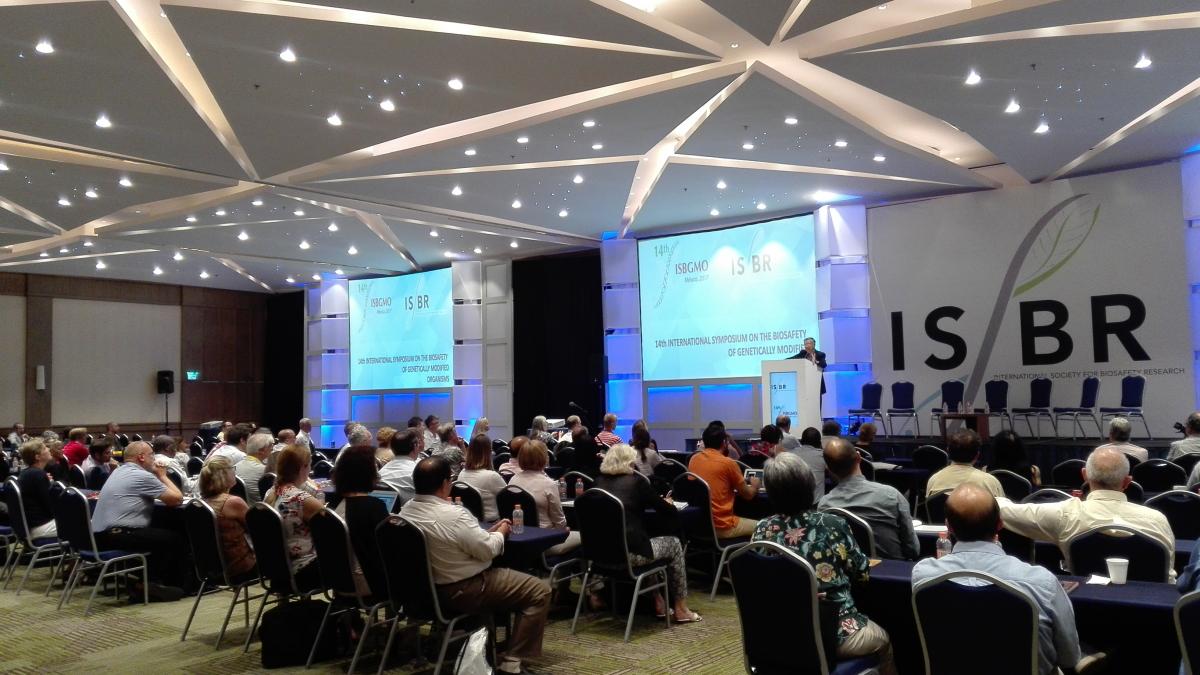
The need to develop a fair regulatory framework for crop biotechnology especially new gene editing techniques was an important take-away from the 14th International Symposium on the Biosafety of Genetically Modified Organisms (ISBGMO), which just ended in Guadalajara, Mexico.
The symposium this year followed the theme Environmental Risk Assessment of Genetically Modified Organisms: past, present and future. It provided a forum for people interested in biosafety a term generally used to describe frameworks of policy, regulation and management to identify and control potential risks associated with the use of new biotechnologies as well as risk assessment and the domestic and international regulatory frameworks around biotechnology. They came together to learn about new research and discuss the main challenges that the scientific community faces in making the science around biotechnology widely available, as well as the fair environmental regulations that scientists seek to facilitate the release of GMOs in their home countries.
We have been producing, commercializing and eating GMOs over the past 20 years, and we have learned from that experience and gained global academic support that endorses biotechnology applications in agriculture.
Now new techniques for genome editing are a reality, and in recent years tools such as CRISPR CAS have become more important. As a result, the regulators are paying attention, as we saw at the last Conference of the United Nations about Biodiversity (COP 13 COP8), where a special discussion was held on the regulation of synthetic biology and the possibility of applying regulations considered in the Convention on Biological Diversity (CBD, 1992) and the Cartagena Protocol on Biosafety (2000) to those new techniques.
From a personal perspective, I think that this is an opportunity to apply the knowledge that we already have to try and take a different approach to dealing with these new techniques. Some regulation is needed because we are talking about a neutral technology. But we should take care to not repeat the same mistake of over-regulating something that we already know is safe for the environment, as well as for human consumption. We must also find ways to communicate the benefits of these new tools, and how they could help humanity face the problems of food production caused by climate change.
The 14th ISBGMO provided a meaningful way to learn about the biosafety work that scientist are now doing. About 300 people with different backgrounds attended the symposium, with participants from the US, Brazil, Argentina, Colombia, Panama, Germany, China, Holland, Switzerland, Nigeria, Africa, Japan and Philippines sharing their experiences.
For us, the young scientists, it is time to look beyond and view the challenges as opportunities, learning from the past while continuing to work in the present, hand in hand with the important scientists who have dedicated their life to promote the application of science in the fields of agricultural biotechnology. Together, we can create a better future.
Luis A. Ventura-Mart nez is a 2016 Alliance for Science Global Leadership Fellow representing Mexico.
